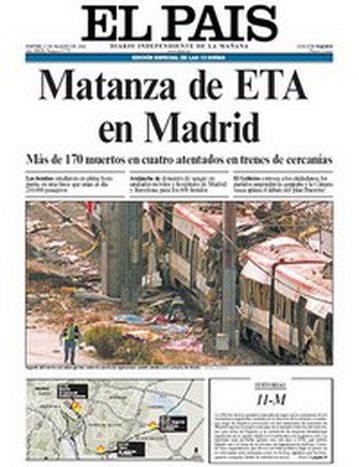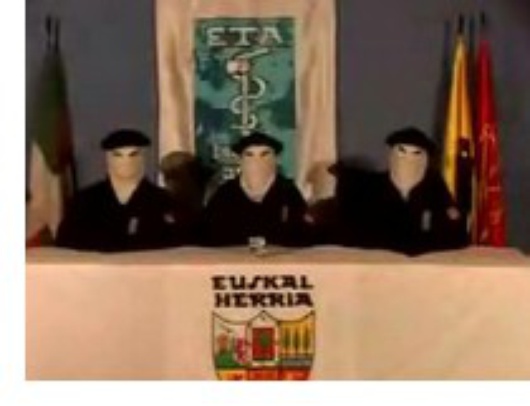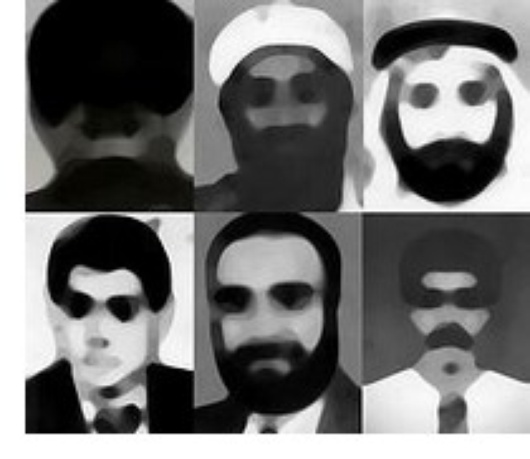
Spain: elections under terrorist alert
Published on
Translation by:
 kate stansfield
kate stansfield
Although arrests of suspected ETA and Jihad terrorists have increased in Spain, the terrorist threat overshadows the campaign of the Spanish legislative elections on 9 March
In Spain, elections are not just pledges and rallies. On 11 March 2004, only 72 hours before the national elections, a new factor, Islamic terrorism, came into play with shocking force. It was of an impact hitherto unseen, despite the violence of ETA, the pro-independence terrorist group, being the major topic of political debate. Now, ahead of the elections on 9 March, security is tightening, thanks in large part to the collaboration between Spain and other European countries. France, known as the ‘sanctuary’ of ETA and their principal refugee, has played a particularly important role.
Essential support from France
 Thanks to the increasing collaboration between the governments on both sides of the Pyrenees, initiated in 1984, the hits against ETA have rocketed. However, this aspect of the foreign and domestic policy of both countries is one of the most sensitive to diplomatic change or dispute.
Thanks to the increasing collaboration between the governments on both sides of the Pyrenees, initiated in 1984, the hits against ETA have rocketed. However, this aspect of the foreign and domestic policy of both countries is one of the most sensitive to diplomatic change or dispute.
There is no better example of this than the clash in immigration policies between Zapatero and Sarkozy after the massive immigrant regularisations carried out by Spain in 2004 and 2005. Bernadino León, secretary of state for foreign affairs, downplays this. ‘There has been no confrontation between the two countries; there are only different sensibilities and criteria. This issue has no impact on our collaboration with France on other matters,’ he says.
 “‘Co-operation between France and Spain is productive and this has not changed with the arrival of Sarkozy. But this is not due so much to political decisions as the efficient exchange of information between police forces. Police cooperation is yielding more results than ever,’ judges José Rojas, Secretary General of the Spanish Socialist Workers' Party (PSOE) in Paris. ‘However, the French people have not completely accepted that ETA does not only threaten Spain, but also France, since its final objective is the unification of the Spanish and French Basque countries,’ he concludes.
“‘Co-operation between France and Spain is productive and this has not changed with the arrival of Sarkozy. But this is not due so much to political decisions as the efficient exchange of information between police forces. Police cooperation is yielding more results than ever,’ judges José Rojas, Secretary General of the Spanish Socialist Workers' Party (PSOE) in Paris. ‘However, the French people have not completely accepted that ETA does not only threaten Spain, but also France, since its final objective is the unification of the Spanish and French Basque countries,’ he concludes.
According to data from Spain’s Interior Ministry, there have been seven arrests of alleged Basque terrorists on French territory in 2008 so far. The increased pressure on terrorists in France appears to be leading ETA to want to move into Portugal in search of a safer territory. In fact, according to Joan Mesquida, director general of the Spanish national police and civil guard, ‘no presence of ETA infrastructure has been detected on Portuguese territory, but the high pressure they are feeling in the south of France seems to indicate that they will certainly begin looking for other territories from which to coordinate their actions.’
We were few, then Al Qaeda arrived
 The true lesson, by its magnitude and unfamilar nature, came with the Jihadist attacks in Madrid on 11 March 2004. Three days before the last legislative elections, ten explosions on four trains in Madrid killed 198 people, leaving more than 1, 500 injured and affecting the election result. After the initial confusion and the ruling Conservative government’s attempts to conceal information, the Socialist party (PSOE) led by the current Spanish president, Rodríguez Zapatero, won the elections, despite indications by the polls prior to the attacks.
The true lesson, by its magnitude and unfamilar nature, came with the Jihadist attacks in Madrid on 11 March 2004. Three days before the last legislative elections, ten explosions on four trains in Madrid killed 198 people, leaving more than 1, 500 injured and affecting the election result. After the initial confusion and the ruling Conservative government’s attempts to conceal information, the Socialist party (PSOE) led by the current Spanish president, Rodríguez Zapatero, won the elections, despite indications by the polls prior to the attacks.
On 21 January last year, the civil guard detained 14 people, 12 Pakistanis and two Indians who, according to investigations, were planning to carry out terrorist acts in the Catalan capital. A large quantity of detonators and explosions were discovered in the group’s possession.
According to indications from the Spanish Interior Minister, Alfredo Pérez Rubalcaba, their intentions were to attack. Rubalcaba highlighted that the situation brought ‘a high state of alert.’ This, so close to the next elections on 9 March, brings to the fore the thought of a possible repetition of the events of 2004. The arrests relied once again on collaboration with France when Spanish authorities were tipped off about the visit to Spain of a Pakistani citizen considered important among the radical circles of his country, information that gave momentum to the entire operation.
The current level of alert in Spain is number 2 on a scale of three levels, which equates to an increased police presence at certain communication and transport points as well as in densely populated areas.
The level of alert in Spain is today second in a system of three levels. This hints at an enforced police presence in areas of communication, transport and agglomeration of people
In-text photos: state secretary for foreign affairs (cafebabel.com), ETA (luistxo/ Flickr), (gorilas/ Flickr)
Translated from España: elecciones bajo alerta terrorista


